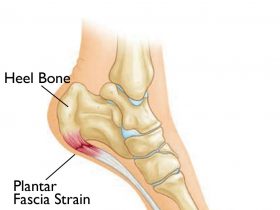Nasal congestion, commonly known as a stuffy nose, is a prevalent health concern that can significantly disrupt daily activities. It is characterized by a blocked or stuffy feeling in the nasal passages, often accompanied by increased mucus production and inflammation. This article aims to provide comprehensive insights into the causes, symptoms, and treatment options for nasal congestion.
Understanding Nasal Congestion
Nasal congestion occurs when the tissues lining the nasal passages become swollen, usually due to inflamed blood vessels. This condition is sometimes mistaken as being caused by excessive thick mucus. However, the actual issue lies in the inflammation of the nasal tissues, resulting in a blocked or stuffy nose.
Symptoms of Nasal Congestion
When experiencing nasal congestion, individuals often find it difficult to breathe through their nose due to narrowed nasal passages. The inflammation also leads to increased mucus production, which may manifest as a runny nose.
Other accompanying symptoms may include:
- Sneezing
- Headaches
- An itchy or irritated nose
- Reduced sense of smell
- A crust inside the nose (though this is rare)
What Triggers Nasal Congestion?
Several factors can lead to the inflammation of the nasal lining, triggering nasal congestion. Some common causes include:
- Infections: Viruses causing the common cold or flu often enter the body through the nose, leading to inflammation and congestion.
- Allergies: Allergic rhinitis, which affects about one in five people, can cause the nasal lining to swell. Common triggers include pollen, dust, and pet dander.
- Medications and Drugs: Certain medicines, including over-the-counter nasal sprays, can lead to nasal congestion if used for extended periods.
- Structural Issues: Problems with the structure of the nose, such as a deviated septum or weak nostril sidewalls, can also cause nasal congestion.
Duration of Nasal Congestion
Nasal congestion typically resolves within a week if it’s due to a common cold or flu. However, if the congestion is caused by allergies or exposure to specific triggers, it may last longer, even becoming a chronic issue in some cases.
How to Treat Nasal Congestion

While nasal congestion can be inconvenient and uncomfortable, various treatments can help alleviate the symptoms.
Over-the-Counter Medications
Over-the-counter cold and flu medicines can help manage multiple symptoms of nasal congestion. These medications often include:
- Nasal Decongestants: These can shrink the inflamed nasal tissues, improving airflow. However, they should not be used for more than three consecutive days to prevent rebound congestion.
- Antihistamines: These can help reduce the amount of mucus in the nose, particularly helpful for individuals with allergies.
Home Remedies
Various home remedies can also provide relief from nasal congestion. These include:
- Steam Inhalation: Breathing in steam from heated water can help clear the nasal passages.
- Humidifiers or Vaporizers: These devices add moisture to the air, which can help break up mucus and soothe inflamed nasal passages.
- Hydration: Drinking plenty of fluids can help thin mucus, aiding its drainage and reducing congestion.
- Elevation: Keeping the head elevated, especially during sleep, can help mucus flow out of the nasal passages, reducing congestion.
- Saline Sprays: These can help remove mucus from the nose, reducing congestion.
Surgical Interventions
In cases where non-surgical treatments are ineffective, surgical interventions by an ENT may be considered. These options include:
- Turbinate Reduction: This procedure reduces the size of the turbinate’s, small structures in the nose, to improve airflow.
- Septoplasty: This surgery corrects a deviated septum, improving airflow through the nose.
- Nasal Valve Surgery: This procedure strengthens the weak sidewalls of the nostrils, preventing them from collapsing and improving breathing.
- Sinus Surgery: This procedure improves the drainage of the sinuses, relieving the pressure and congestion.
- Nasal Polypectomy: This surgery removes nasal polyps, non-cancerous growths in the nose that can cause blockages.
Preventing the Spread of Nasal Congestion
If nasal congestion is due to a viral infection, it’s essential to take steps to prevent the spread of the virus. These measures include practicing good hygiene, cleaning frequently touched surfaces, and avoiding close contact with sick individuals.
When to Seek Medical Advice
If nasal congestion persists for more than two weeks, is accompanied by a high fever, or results in green nasal discharge, it’s advisable to seek medical advice. Moreover, individuals with a weakened immune system, asthma, or emphysema should see a doctor right away if they experience persistent nasal congestion.
Conclusion
Nasal congestion can range from a mild annoyance to a significant disruption of daily life. Understanding its causes and potential treatments can help individuals effectively manage this condition and maintain their quality of life. If over-the-counter treatments and home remedies do not provide relief, it’s essential to seek medical advice to explore other treatment options, including surgical interventions.
Infographic created by OmniAb, offering an antibody discovery platform designed to fast-track advancements in biomedical research










